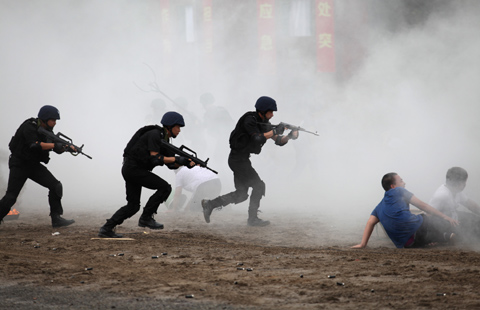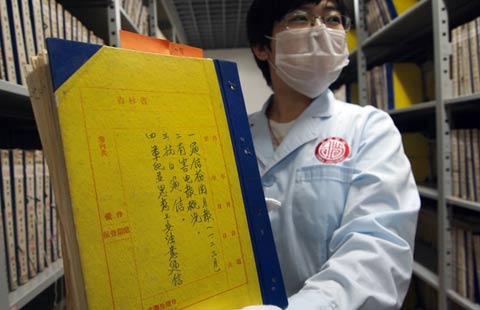Reform brings independence to China judiciary
(Xinhua) Updated: 2014-07-11 10:05BEIJING - China is moving toward a mature socialist court system, one with more independence and less influence and protectionism from local officials.
A judicial reform blueprint rolled out on Wednesday by the Supreme People's Court endowed judges with the right to make independent rulings without the approval of court heads.
In the current Chinese judiciary, rather than having judges try cases, court decisions are made by a judicial council which does not participate in the trial.
The "try but not judge" practice has always been a key part of China's judical reform and has been criticized over the years for impairing court fairness.
At a key meeting of the Communist Party of China in late 2013, the central authorities urged that trial judges should make and be responsible for their own rulings.
During the legal procedure, a fair judgement can be expected only from a judge who has listened to the defendants, accusers and witnesses and checked the evidence himself.
The separation of trial and ruling only leads to inefficiency and unfairness.
The reform plan make it clearer that trial judges' decisions will no longer need to be signed off by court heads and that the function of the judical council is mainly to "discuss the legal measures for a case," so henceforth, judges' independence can be largely guaranteed.
But independence doesn't mean complete freedom. Sound supervision from the court heads must be in place to keep judges' power from inflating. In some cases, they may also need to cooperate with the judicial council to make rulings.
The latest reform outline also considered cutting links between courts and local governments to reduce officials' judicial interference.
At present, local courts are generally subjected to local governments in terms of human and finance management, thus local officials can often influence court decisions in their jurisdictions.
In some incidents, big companies have avoided legal sanctions for environmental pollution as they bring revenues to local governments and offer jobs to local citizens.
The plan asked for the establishment of judicial selection committees at provincial-level courts to promote professional selection of the bench as well as reduce nepotism within local governments.
Moreover, local courts' finances will be put under uniform administration by provincial authorities and the money and property they collect as litigation fees, fines and forfeitures will be rendered to the provincial treasury.
The de-localization of the court system is a big step forward. It solves the worries of judicial authorities and enables them to handle cases strictly in accordance with the law, safeguarding judical fairness.
- Plan to build border city in Xinjiang Ok'd
- Fun diving in Guangdong
- School bus accident kills 11 in C China
- Web retailers urged to heed consumers' refund rights
- Military boosts corruption fight
- Changes sought in smoking law
- Second-child policy having limited effect
- Graduation photos capture younger, older self
- Courts in China to look out for lawyers
- College addresses need for experts in anti-terrorism







